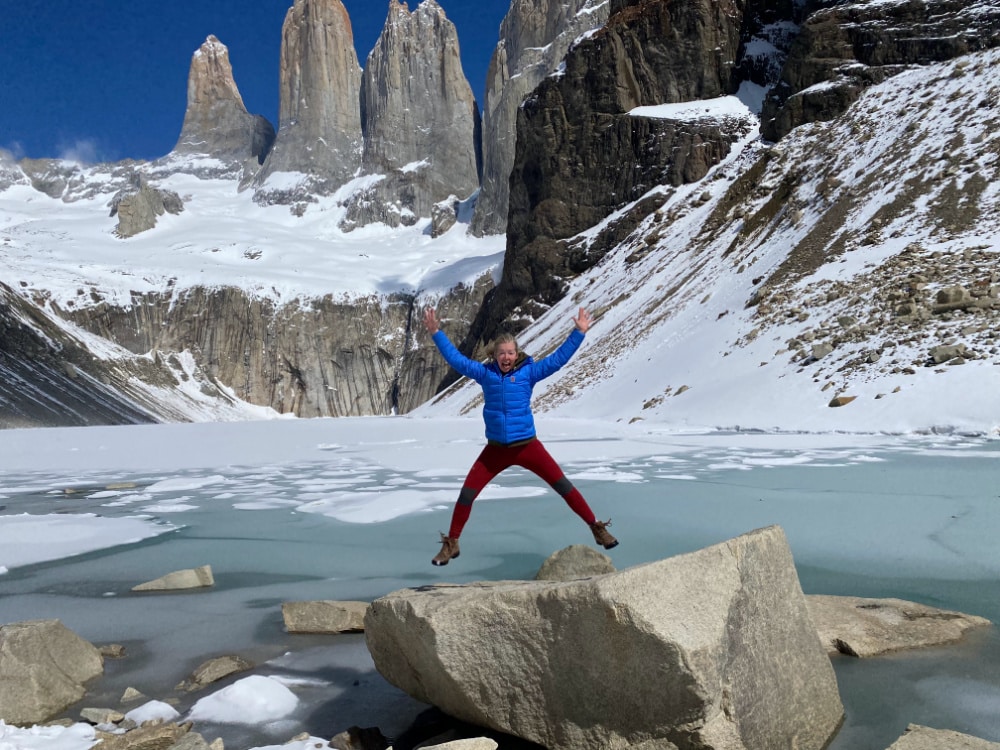Being a travel writer sounds like a dream job – and sometimes it is. But for every sunset cocktail on a five-star resort’s infinity pool deck, there’s a missed connection in a dingy airport, a bout of food poisoning from that must-try street food, or a deadline looming while your Wi-Fi cuts out.

Disclosure: Travels with Baggage sometimes receives compensation and/or hosted travel and sample products related to blog posts. This story may include affiliate links for which we receive a small commission at no extra cost to consumers.
Travel writers are professional wanderers but also skilled jugglers. You’ve got to be able to balance time zones, jet lag, and the constant pressure to find fresh angles in destinations that have been written about thousands of times before. If you can’t, you’ll never make it in this business.
The real trick isn’t just going places – it’s gathering the tiny details that will transport readers with you while making it look effortless. Oftentimes, that means waking up at 4 am to get to “the spot” before the crowds arrive. Every moment, even the uncomfortable ones, becomes potential story material. After all, those mishaps often make the best tales – once you’re safely back home.
Here’s the tea on what being a travel writer is really like and how we make it work.

What most people think being a travel writer is like
I suspect most people think being a travel writer is like being on permanent vacation. In reality, it’s more like being on a guided tour for 16 hours a day with the most annoying people you can imagine. (Nobody says we travel writers aren’t irritating. Not the PRs we work with, anyway.)
We’re always on alert, taking notes and hoping to capture the perfect shot. Interesting, yes. Relaxing, no.
While we can sometimes guide our itinerary, for the most part, we’re doing things and seeing what the destination wants us to see, which may not align with our interests. Fortunately, I’m now at a place in my career where I can institute a “no beer, no golf” rule.
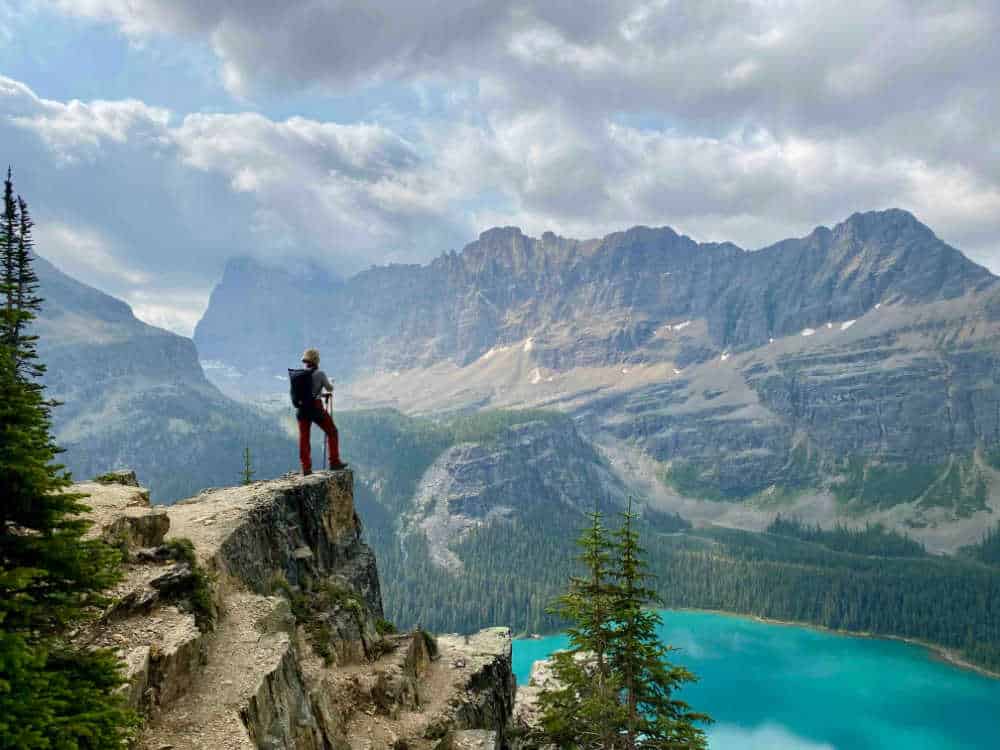
How I really spend my days
Ironically, the more you travel, the less money you typically make. The majority of travel writers aren’t nomadic warriors. I’d estimate the average travel writer does a trip every month or two.
But if you look at our Instagram feeds, it seems we’re always on the road. That’s more a matter of spacing out content than always travelling. Stories are a more accurate reflection of where a person actually is.
When I’m not on the road, my days are boringly predictable. Each morning at home, I check my email and put out any fires before heading to the gym. Then, I usually deal with logistics for an upcoming press trip, interviewing some experts or sizing images.
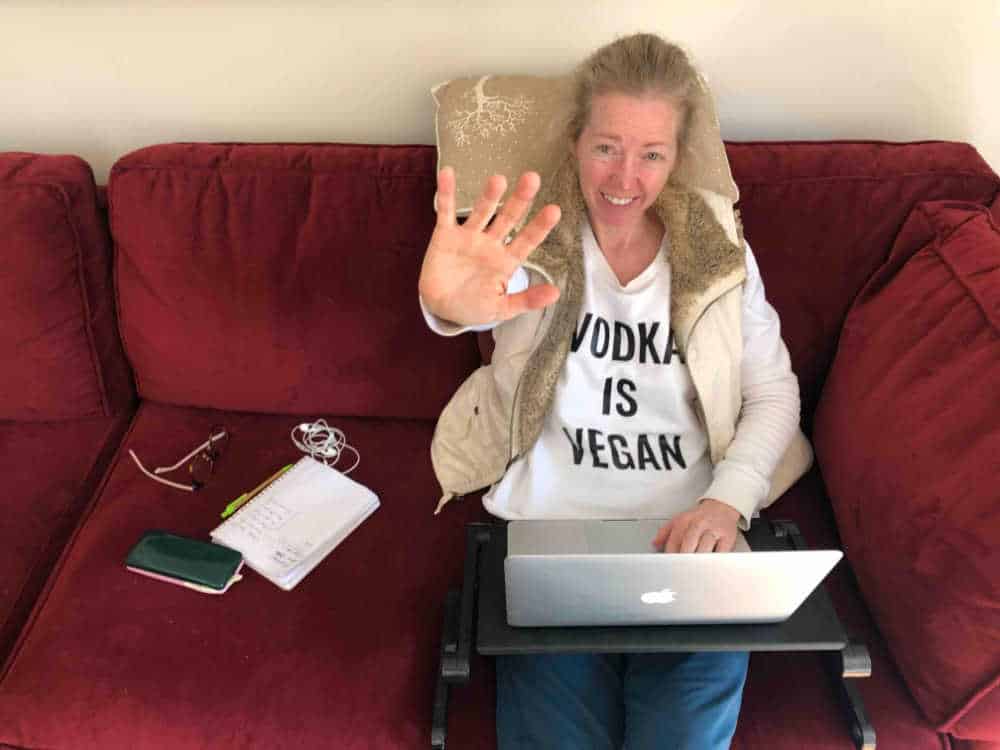
My most productive writing time is in the afternoon, so I’ll head to a library after lunch. I find I do so much more when I’m out of the house. Typically, my focused writing time is 2-4 hours a pop, and I bang out at 500 to 1,000 words.
Things really slow down on Fridays, so I typically work every Friday afternoon until 6 pm (when the library closes), plus Saturday and Sunday afternoons, too. The upside is that I can make health appointments anytime during the week and hit a mid-morning exercise class.
Usually, I have 3 articles on the go at any given time. Then there are Instagram and other social media platforms I have to keep on top of. This I struggle with. Social media does not come naturally to me. Some nights, there are events in my city that I should attend so I can network with potential partners.
The travel writer lifestyle cuts into your personal life big time. I can’t tell you how many weddings, birthdays and reunions I’ve missed. The upside is that people in the travel industry are almost always interesting, fun people. Many of my good friends are in the industry, so connecting with them at events is no hardship.
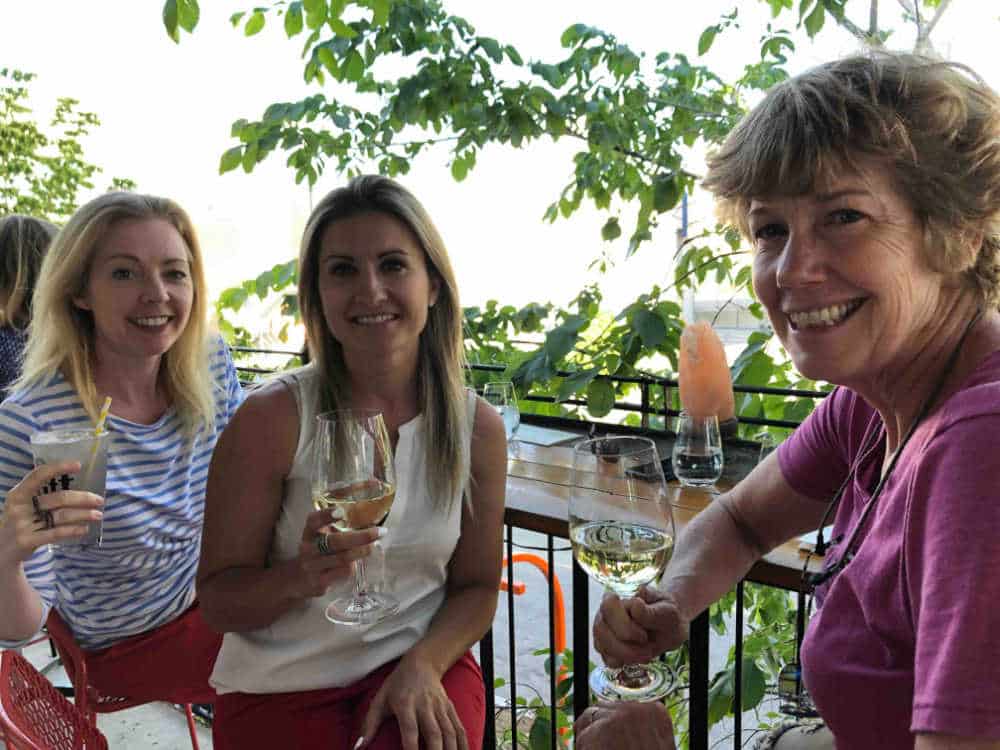
What it’s like being on a press trip
This is what most people are envious of—the travel. The reality is way less glamorous than what you see on Instagram or read about in our blogs and newspaper articles.
We start bright and early and are usually escorted somewhere around 8:30 am – no matter what time you arrive the night before or how jet-lagged you might be. Once, I got off a trans-Atlantic flight to Europe at 5:30 am and arrived at my hotel at 6:45 am. We were expected to be back on the bus at 7:15 am to start touring. Ugh.
We usually visit 3 to 6 attractions a day. (Note: You may not be remotely interested in these attractions, but we’re required to tour them anyway.)
Usually, we break at 1pm for lunch, which goes on and on forever. There are multiple courses, and 80% of the time, we end up sitting for a good 45 minutes doing nothing before the host gets it together to pay the bill and herd us cats.
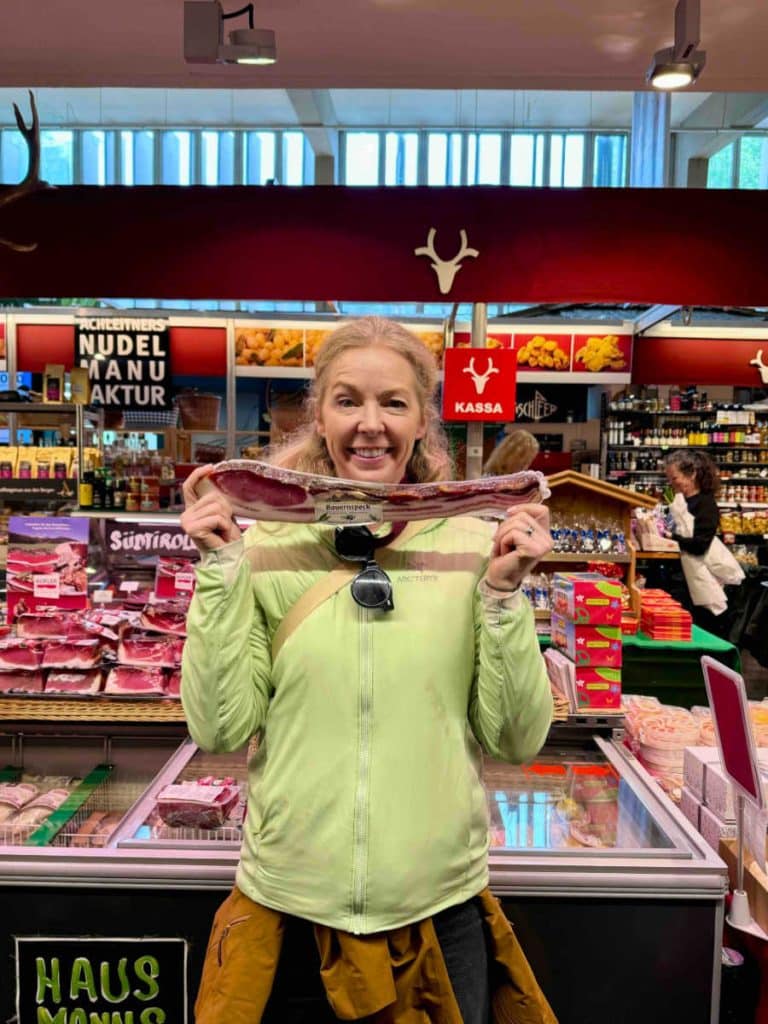
This puts us behind schedule for the entire afternoon. This really means the 45 minutes to one hour the host has budgeted for us to check email or get cleaned up before dinner gets sacrificed.
The dinners are generally lovely, though. We’re mostly taken to the best restaurants and get an opportunity to sample multiple courses and talk to the chef. The downside is that we ingest thousands more calories a day than we would at home.
I find it hard to say no to exquisite meals, so I always return 2-6 pounds heavier. It’s not the healthiest of lifestyles.
On an individual press trip, you have more freedom with your schedule. Still, you need to nail off several activities each day. You will not be given a day to laze around the pool. You could, however, tack on an extra few days at the destination at your own expense.
Don’t get me wrong—I love what I do. And I’m so grateful to have these once-in-a-lifetime experiences. It’s just that our travel itineraries are so tightly packed that we don’t have the same freedom a regular traveller would.
How much do travel writers get paid?
Most people want to work with Jody Robbins because she’s a freelance writer for Canada’s top newspapers and magazines. When my articles are syndicated across Canada, they reach over 20 million readers in over 100 outlets. Sounds great, doesn’t it?
While the reach is massive, the pay doesn’t reflect that. I’m paid anywhere from $150-500 for newspaper and digital articles. Magazines pay more. You’ll be thrilled if you get $1/word. But travel sections are shrinking, so you can only count on a few features a year if you’re lucky.
How I earn money (real money)
I make most of my money through sponsorships and ambassadorships (always disclosed) and this blog. The ultimate goal as a travel writer is to add value to the reader while making enough income to support yourself. Having my own platform allows me to do this.
This is why I’ve partnered with Stay22 on my blog. I’ve done other types of affiliate marketing (if someone clicks on your link and purchases a product, you receive a small commission). None have delivered the ease or consistent passive income as Stay22.
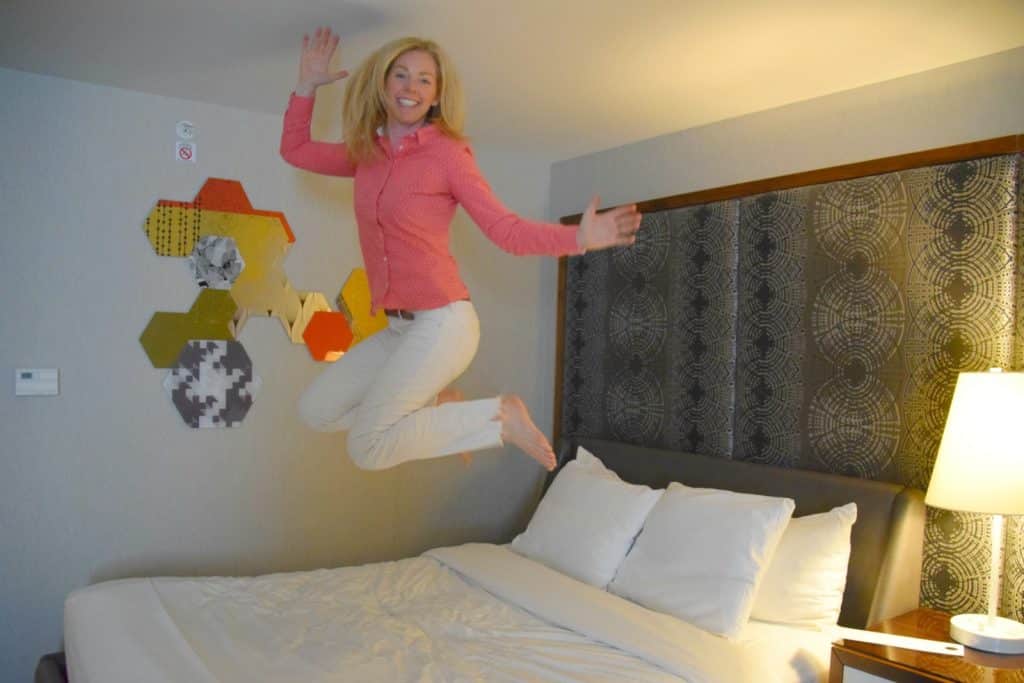
If you’re starting out as a blogger or content creator, getting set up with Stay22 early will save you time and enable you to earn more. Essentially, you drop Stay22’s code into the backend of your site. Then, whenever you link to a product (hotel, car, etc…) on Expedia or Booking.com, and if someone books a stay or car rental, Stay22 gives you a percentage of that booking.
It’s natural for travel writers to recommend certain hotels we’ve had good experiences at. I’m not forcing anyone to book or click on a link, but I’m saving them a step if they’re curious about the rates.
I met an Italian blogger in May and recommended Stay22 to him. Within a few months, he had over 100 hotel bookings from his site. He’d already included these hotel recommendations in his blog posts, so all he had to do was get set up with Stay22 — a 5 to 10-minute process and then watch that passive income roll in.
Content writing
Writing for destination marketing organizations or travel companies is another way I earn actual income. Some clients pay $1 per word, while others offer a flat rate, usually around $750/article.
It’s copywriting, not journalism. And it won’t get you a “free” trip anywhere, but it’s a solid way to pay the bills.
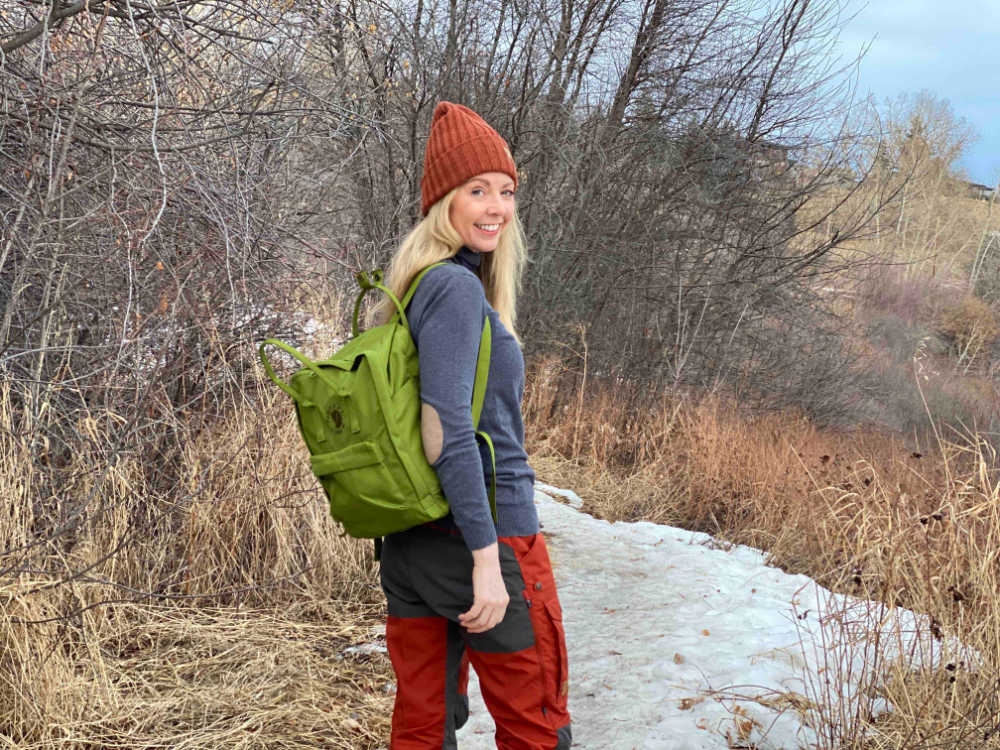
Is the reality of being a travel writer what you expected? Let me know in the comment section. I promise to answer all your questions.
